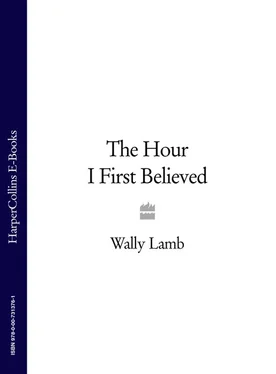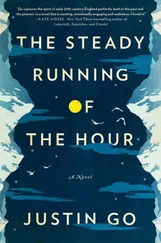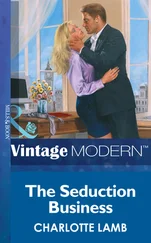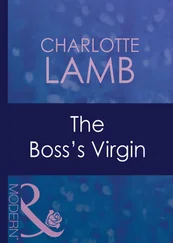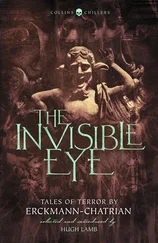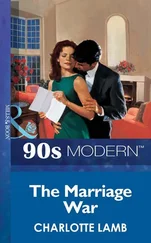“Hey,” I said. “What do you say I give the dogs a quick run, then we go someplace for breakfast?”
She rinsed the glasses, kept me waiting. “Can’t,” she finally said.
“You can’t, or you’d rather not eat eggs with a shithead like me?”
No forgiving smile. No look in my direction. She grabbed a washcloth, wiped the glasses so hard they squeaked. “I’m taking Velvet to breakfast.”
I stood there, nodding. Touché.
In that system of signals Mo and I had worked out with Dr. Patel, there was no shorthand for “I’m sorry.” You were obliged to speak those two words. But the mention of Maureen’s breakfast buddy short-circuited any contrition I’d been generating.
Mo’s field was gerontology, but after we moved out West and she took the school nurse’s job, she found she enjoyed working with the high school kids. She liked the needy ones, particularly. “Just give them an aspirin and send them back to class,” I kept advising her. Instead, she’d help them with their math, counsel them on their love lives, give them rides and lunch money. I’d warned Mo to observe boundaries with Velvet, especially. Velvet Hoon was like a Cape Cod undertow: if you weren’t careful, she’d pull you in deeper than you meant to go. I spoke from experience.
I pulled on my sweats, laced up my running shoes. If she wanted to spend her weekend morning with a dysfunctional sixteen-year-old instead of with her husband, then fine. Fuck it. Maybe I’d leave the dogs home, do a long run—the eight-miler out to Bear Creek Lake and back. I was halfway out the door when she said something about a rain check.
I stopped. Our eyes met for a nanosecond. “Yeah, whatever,” I said. Bounding past me down the stairs, the dogs almost sent me tumbling.
Outside, it was see-your-breath cold. Flurries possible tomorrow, they said. Goddamn thin Colorado air. It was different back in Connecticut. By mid-April, the sea breezes began to cut you some slack. Aunt Lolly had probably gotten her garden rototilled by now, I figured. She may have even put her peas in the ground. When she called on Sunday, I’d be sure to get the weekly farm and weather reports, along with a complaint or two about her hired man, Ulysses—“Useless,” she called him—and an update on the latest shenanigans being pulled by “those goddamned toy soldiers down the road.” Lolly had it in for the paramilitary regime that now ran the maximum-security version of what she still stubbornly referred to as “Grandma’s prison.” Like her paternal grandmother, who had served as superintendent of the Bride Lake State Farm for Women from 1913 to 1953, Aunt Lolly, too, had been a Bride Lake long-timer, albeit a rank-and-filer. For forty of her sixty-seven years, she’d been a second-shift custody officer—a CO. “Of course, that was back when they let us treat the gals like human beings instead of cockroaches,” she’d say. “Nowadays they’ve got all those captains and majors and lieutenants strutting around like it’s May Day in Moscow, and they don’t know shit from Shinola about how to run a ladies’ jail.”
Out in the backyard, I was doing my stretches and deliberating about whether or not to go back in for a cap and gloves when I heard leaves crackling in the woods behind our place. The dogs heard it, too. They stood rigid, staring at the clearing, Chet emitting a low, throaty growl. Deer, I figured. Too heavy-footed for squirrels. “Easy, boy,” I told Chet, and the three of us stood there, listening to the silence. A few seconds later, the crackling recommenced and she emerged from the woods in all her chaotic glory: Velvet Hoon.
Remembering that our dogs freaked her out, I grabbed them by their collars. “Got ’em!” I called. The phrase “all bark, no bite” could have been coined for our mutts; couple of wimps, those two. But to tell you the truth, it was a relief to see Velvet afraid of something. Eyeing my hold, she entered the yard in full freak regalia: halter top, exposed flab, hacked-off tuxedo pants, and those Bozo-sized men’s workboots of hers, spray-painted silver. Her shaved head had grown out in the months I hadn’t seen her. Now she was sporting a butch cut, dyed bread-mold blue. Watching her make a beeline for the picnic table, I couldn’t help but crack a smile. Short and squat, she moved like R2-D2. She climbed from the bench to the tabletop and fumbled for a cigarette. Having secured higher ground and sucked in a little nicotine, her cocky stance returned.
“Maureen home?” she called.
“Mrs. Quirk, you mean?” I nodded. Watched a shiver pass through her. What did she expect, exposing that much belly in weather where you could see your breath? “I’ll tell her you’re out here.” I’d be damned if I was going to let her back in the house. “You need a jacket?”
Instead of answering me, she screamed at the barking dogs. “Peace out! Shut the fuck up!” Her shouting made them nuts.
Back inside, I called up the stairs. “Cinderella’s here!”
“Already? I told her nine o’clock.”
“Must have been a hell of a shortcut. She arrived through the woods.”
No response.
“I’m heading out now. Gonna run out to Bear Creek and back.”
Nothing.
“Don’t let her in here unsupervised, okay?” One thousand one, one thousand two, one thousand…“Maureen!”
“Okay! Okay!”
In the mud room, I grabbed my wool-lined jacket and headed back out. Velvet was still on the picnic table, but sitting now, smoking. “Here’s a loaner,” I called. I balled up the jacket and tossed it underhand. It fell short by a foot or two, landing on the frosty grass. She looked down at it but didn’t move. “Make sure you stub out that cigarette when you’re done,” I said. She took a drag, blew smoke toward the sky.
“You find my book yet?” I said.
“I didn’t take your freakin’ book.”
She looked away before I did. I turned and jogged down the driveway. If she wanted to freeze out there rather than pick up the jacket, then let her. It wasn’t like she was doing me any favors.
It was a tough run. My lungs burned, my throat felt fiery from what was probably a cold coming on. Even at the top of my game, I’d never fully acclimated to running at those altitudes. “Your red blood cells adjust in a few days, Caelum,” Andy Kirby had told me once. “It’s your head that’s the problem.” Andy’s a marathoner and a math teacher. Andy, Dave Sanders, and I used to eat lunch together during my first year on the faculty. Dave was the girls’ basketball coach, and he followed the UConn women pretty closely—closer than I did. Good guys, Dave and Andy were, but during my second year at Columbine, I started bringing my lunch and eating in my room. I don’t know why, really; I just did. For a while, the kids—the needy ones—would squint through the window in my classroom door and want to visit me during my duty-free lunch. After a while, though, I got smart. Cut a piece of black construction paper and taped it over the glass. With the lights off, the door locked, and the view blocked, I was able to eat in peace.
See, that’s what Maureen didn’t get: that sometimes you had to play defense against that wall of adolescent neediness. Her job in the nurse’s office was half-time, which meant she could leave at noon. But more often than not, she was still there at the end of the school day. “Accept your limitations,” I’d warn her. “A lot of these kids are damaged beyond repair.” And you know what her response was? That I was cynical. Which hit a nerve, I have to admit. I wasn’t a cynic; I was a banged-up realist. You live to middle age, you begin to reckon with life’s limits, you know? You lace up your sneakers and run it out.
From West Belleview, I took a left onto South Kipling. My destination, the park entrance at Bear Creek Lake, was a haul, and eight miles there meant eight miles back. I’d forgotten to grab my gloves, and my hands felt cold and raw. I was raw on the subject of Velvet Hoon, too.
Читать дальше
